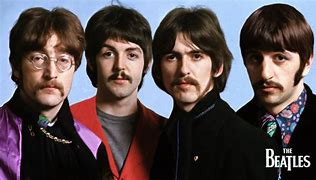A Critical Analysis
The Beatles, undoubtedly one of the most influential bands in music history, produced a staggering body of work over their relatively short career. Their discography is a testament to their artistic evolution and experimentation, making it a challenging task to rank their albums. Nevertheless, we’ll attempt to navigate this complex landscape and present a critical analysis of their albums, from their early hits to their psychedelic masterpieces.
The Early Years Beatlemania and Beyond
Please Please Me (1963): The band’s debut album captured the raw energy and infectious enthusiasm of their early live performances. Tracks like “I Saw Her Standing There” and the title track became instant classics.
With The Beatles (1963): Building on the success of their debut, this album showcased the band’s growing songwriting talents and introduced deeper tracks like “All My Loving.”

A Hard Day’s Night (1964): The soundtrack to the film of the same name, this album solidified the Beatles’ status as global superstars. It featured a blend of catchy pop songs and more ambitious compositions.
Beatles For Sale (1964): A transitional album marked by a shift in songwriting styles, with a heavier emphasis on ballads and introspective lyrics.
The Middle Period Experimentalism and Maturity
Help! (1965): The soundtrack to their second film, this album showcased the band’s increasing sophistication, with songs like “Yesterday” and “Ticket to Ride” becoming timeless hits.
Rubber Soul (1965): A landmark album that signaled a departure from their early pop sound, introducing elements of folk, R&B, and Indian music. Tracks like “Norwegian Wood” and “In My Life” showcased the band’s artistic growth.
Revolver (1966) Often hailed as the Beatles’ greatest album, Revolver pushed the boundaries of popular music with experimental soundscapes, intricate arrangements, and groundbreaking songwriting. Tracks like “Eleanor Rigby” and “Tomorrow Never Knows” are considered masterpieces.

The Late Period: Psychedelic Exploration and Disintegration
Sgt. Pepper’s Lonely Hearts Club Band (1967): A groundbreaking album that redefined the concept of the album as an art form. With its psychedelic soundscapes, elaborate arrangements, and thematic cohesiveness, Sgt. Pepper’s remains a cultural touchstone.
Magical Mystery Tour (1967): A mixed bag of singles, film soundtrack, and experimental tracks, this album showcases the band’s diverse musical interests but lacks the consistency of their previous work.
The Beatles (The White Album) (1968):
A double album reflecting the band’s individualistic tendencies and creative exploration. It contains both brilliant tracks and experimental fillers.
Yellow Submarine (1969):
Primarily a soundtrack to the animated film, this album features a collection of songs, some previously released, and some new.
Abbey Road (1969): Despite the band’s impending breakup, Abbey Road is a masterpiece of songwriting and production. The album’s second side, featuring the iconic medley, is considered one of the greatest musical achievements of all time.
Let It Be (1970): Released after the band’s breakup, Let It Be documents the tensions within the group. While it contains some strong songs, it lacks the cohesiveness of their earlier work.

The Legacy
Ranking the Beatles’ albums is a subjective exercise, as each album offers unique rewards. Their discography is a testament to their extraordinary talent and their willingness to experiment and evolve.
While some albums stand out as undisputed classics, others offer glimpses into the band’s creative process and personal struggles. Ultimately, the Beatles’ music continues to resonate with audiences worldwide, ensuring their legacy as one of the most influential and beloved bands in history.

FAQS
Ranking the Beatles’ albums is highly subjective and often sparks passionate debates among fans. This FAQ offers a general overview based on popular opinion and critical acclaim.
What is considered the best Beatles album?
Determining the best Beatles album is a matter of personal preference, but many fans and critics agree that Revolver and Abbey Road are strong contenders for the top spot. Revolver is praised for its innovative sound and groundbreaking songwriting, while Abbey Road is celebrated for its cohesive structure and iconic medley.
How are the Beatles albums typically ranked?
While rankings can vary, a common consensus among fans and critics often places the albums in the following order:
- Revolver
- Abbey Road
- Sgt. Pepper’s Lonely Hearts Club Band
- Rubber Soul
- The Beatles (The White Album)
- Help!
- A Hard Day’s Night
- Please Please Me
- With The Beatles
- Beatles for Sale
- Magical Mystery Tour
- Let It Be
- Yellow Submarine
It’s important to note that this is a general ranking, and many fans have different opinions.
Why is Sgt. Pepper’s Lonely Hearts Club Band so highly regarded?
Sgt. Pepper’s is often considered a landmark album that redefined the concept of the album as an art form. Its innovative sound, thematic cohesion, and groundbreaking approach to songwriting have solidified its place in music history.
What makes Abbey Road so special?
Abbey Road is celebrated for its cohesive structure, featuring a side-long medley that is considered one of the greatest musical achievements of all time. The album showcases the band’s songwriting and musicianship at their peak.
Which Beatles album is best for new listeners?
For new listeners, albums like A Hard Day’s Night or Rubber Soul offer a good introduction to the band’s music. These albums feature a mix of catchy pop songs and more complex compositions, providing a diverse listening experience.
Are there any hidden gems among the Beatles’ albums?
While the most popular albums are often the focus, albums like Rubber Soul and Revolver contain many hidden gems. These albums showcase the band’s experimentation and growth as songwriters.
Why is there so much debate about the Beatles’ albums?
The Beatles’ discography is incredibly diverse, spanning different musical styles and eras. This variety makes it challenging to rank their albums definitively. Additionally, personal preferences and the context in which listeners discovered the band play a significant role in their opinions.
Ultimately, the best way to appreciate the Beatles’ music is to explore their entire discography and form your own opinions.
To read more click here
